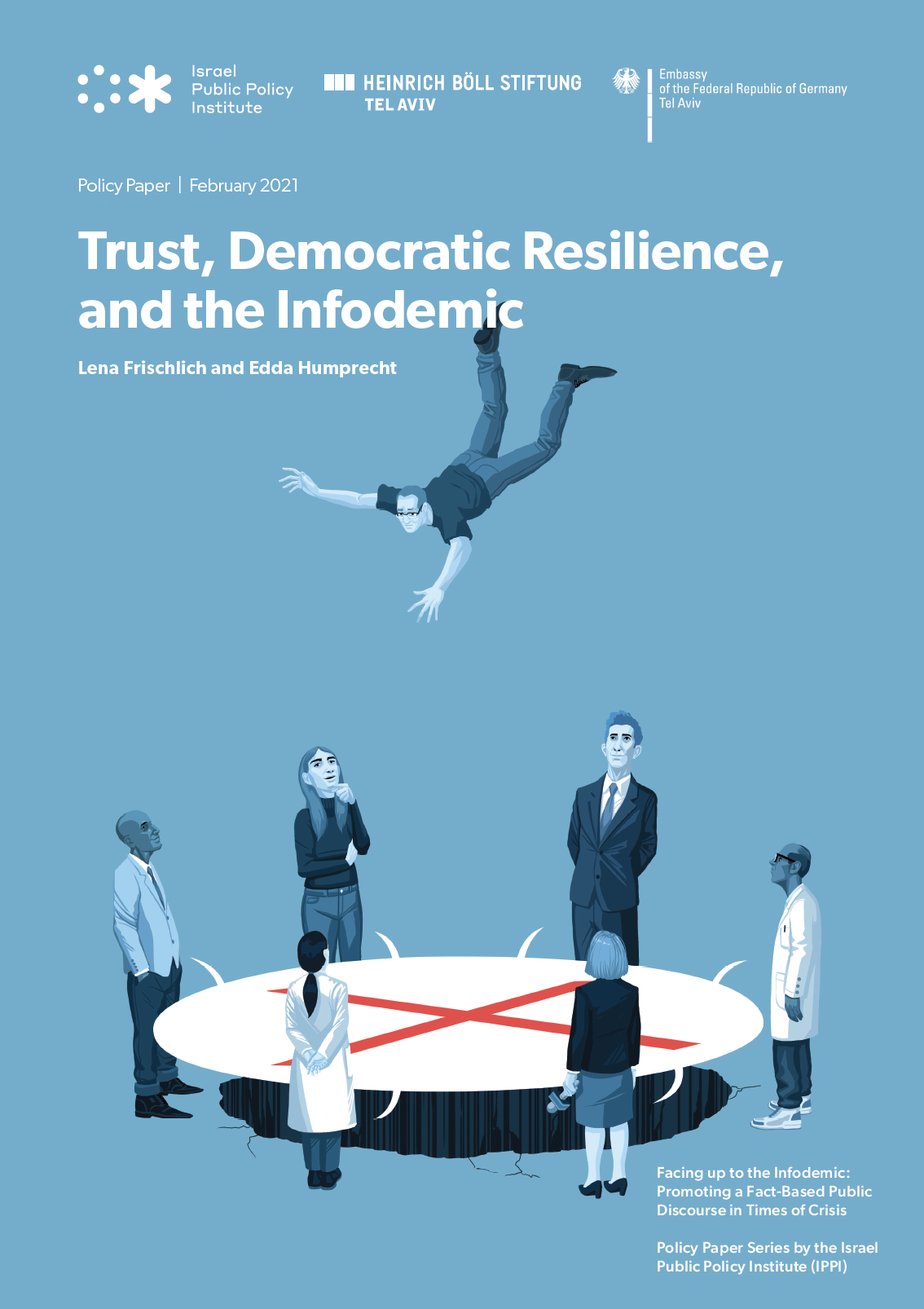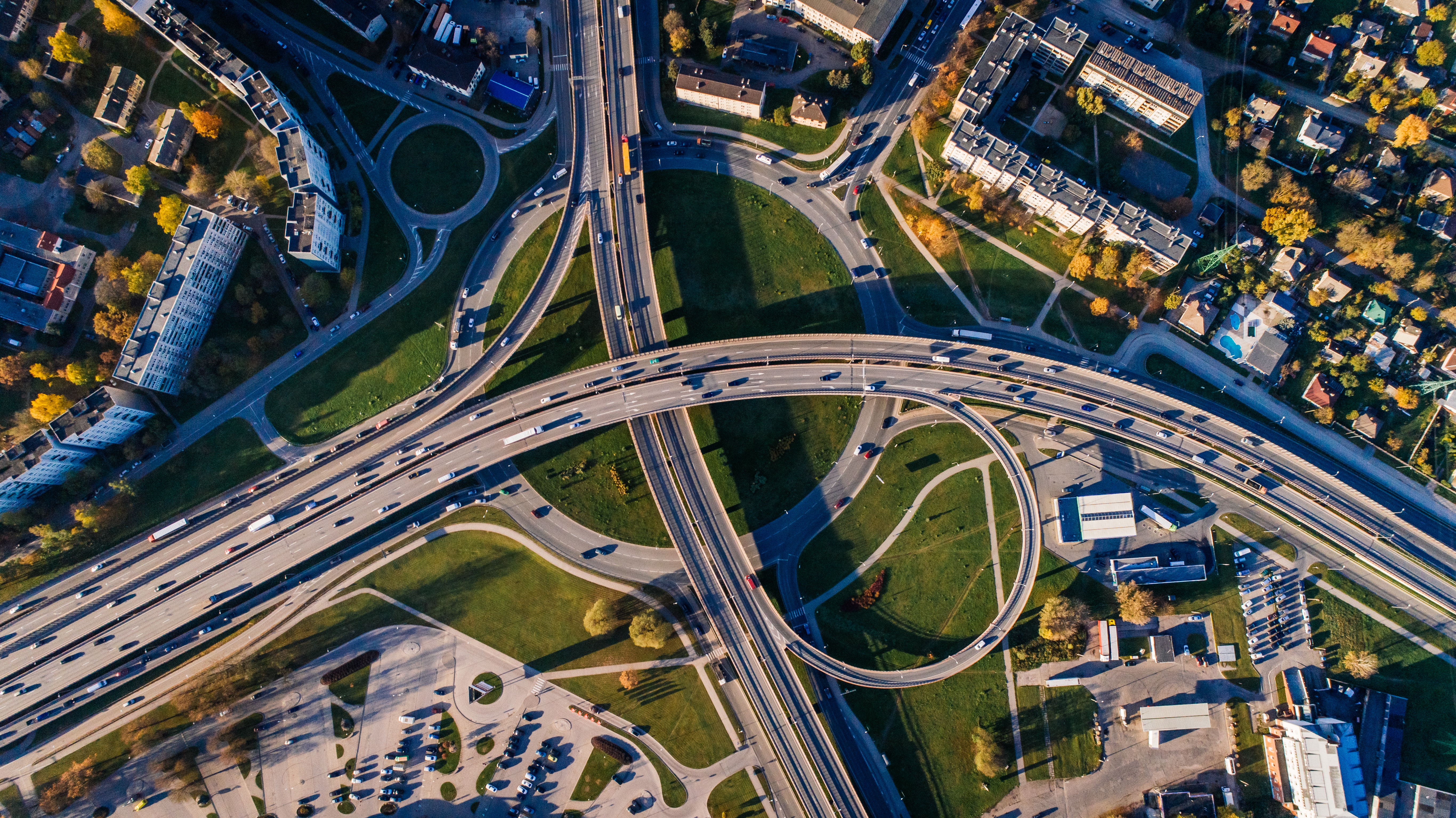
Share this Post
Authors: Dr. Lena Frischlich and Dr. Edda Humprecht
Trust and its Role in Combating Disinformation
The world has been facing a global crisis since the emergence of the COVID-19 pandemic; a crisis in which now more than ever, trust is critical for communities to function. Trust is essential because it permits one to tackle such crises and understand complicated issues, particularly in today’s digital age which has brought on an onset of disinformation that can spread like wildfire.
Trust is an integral and binding element of a democratic society. It is a series of actions in which one entity takes the risk to trust another entity such as the government, individuals, or other institutions. In order to foster democratic resilience to disinformation both on a societal and an individual level, trust must be embedded into the relationships among citizens and to the institutions that govern.
This policy paper found three key findings:
- If citizens increasingly lose trust in democratic institutions, for example, the media and politics, they are more likely to resort to different news outlets and become more open-minded to conspiracy theories and other forms of disinformation. As a result, societies can experience an increase in the lack of trust and deceptions.
- Various countries around the world are witnessing a deterioration in their democratic institutions brought on by the opposition to democracy caused by social polarization and instability.
- Polarization and instability can lead to conflict between different groups, which exacerbates the tendency to believe in conspiracy theories and other forms of disinformation. These forms of disinformation are spread on social media and encourage individuals to behave carelessly because social media outlets allow this disinformation to spread more quickly and easily.
Based on these findings, this policy paper recommends the following:
- Policy makers must support accurate journalism and create regulations that encourage responsible information handling while utilizing accurate information themselves.
- Legacy media must take up and correct information and keep in mind appropriateness, as well as avoid spreading disinformation and instead inform on the mechanics of manipulation to empower analytical thinking. Furthermore, legacy media should encourage different opinions so that individuals can feel as though their different perspectives are represented.
- Citizens must learn to manage the information they find on social media outlets responsibly, access accurate information, and be mindful of the consequences that the spread of disinformation has on societies.
————————————————————————————————————————————————–
The Israel Public Policy Institute (IPPI) serves as a platform for exchange of ideas, knowledge and research among policy experts, researchers, and scholars. The opinions expressed in the publications on the IPPI website are solely that of the authors and do not necessarily reflect the views of IPPI.
Download Full Publication
Trust, Democratic Resillience and the Infodemic

Share this Post

Leveraging the benefits of smart mobility via an integrated data platform
The Role of Big Data and AI in Sustainable Urban Development Increasingly abundant big data and artificial intelligence…

The Quantum Internet: A Network for All?
From optimizing production in manufacturing, to allocating hospital beds, to operating door entry systems of smart buildings, the…

How Mainstreaming of Anti Vaxxers Granted Conspiracy Theorists a Covid-19 Spotlight
In January 2020, before we were familiar with Covid-19, Alex Jones’ channel, Infowars, hosted Del Bigtree — a producer, and antivax…
